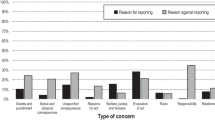Abstract
Although academic dishonesty is a major problemin American colleges and universities, relatively littleresearch has investigated gender differences incheating. Based on the differential socialization theory of gender differences in moral reasoning(e.g., Chodorow, 1989; Gilligan, 1982) we expected that,compared to women, men would report more favorableattitudes toward cheating and more cheating behavior. We conducted a meta-analysis that included 8studies of gender differences in attitudes towardcheating, 34 studies of gender differences in cheatingbehavior, and 6 studies that investigated both attitudes and behavior. Although the mean effect size forgender differences in attitudes was of moderatemagnitude, equivalent to a correlation of r = .21, themean effect size for behavior was small, equivalent to r = .08. Behavior effect sizes also varied asa function of field of study, method of data collection,and country in which the study was conducted. We discussthe implications of our results for future research on gender differences in academicdishonesty.
Similar content being viewed by others

Rights and permissions
About this article
Cite this article
Whitley, B.E., Nelson, A.B. & Jones, C.J. Gender Differences in Cheating Attitudes and Classroom Cheating Behavior: A Meta-Analysis. Sex Roles 41, 657–680 (1999). https://doi.org/10.1023/A:1018863909149
Issue Date:
DOI: https://doi.org/10.1023/A:1018863909149


